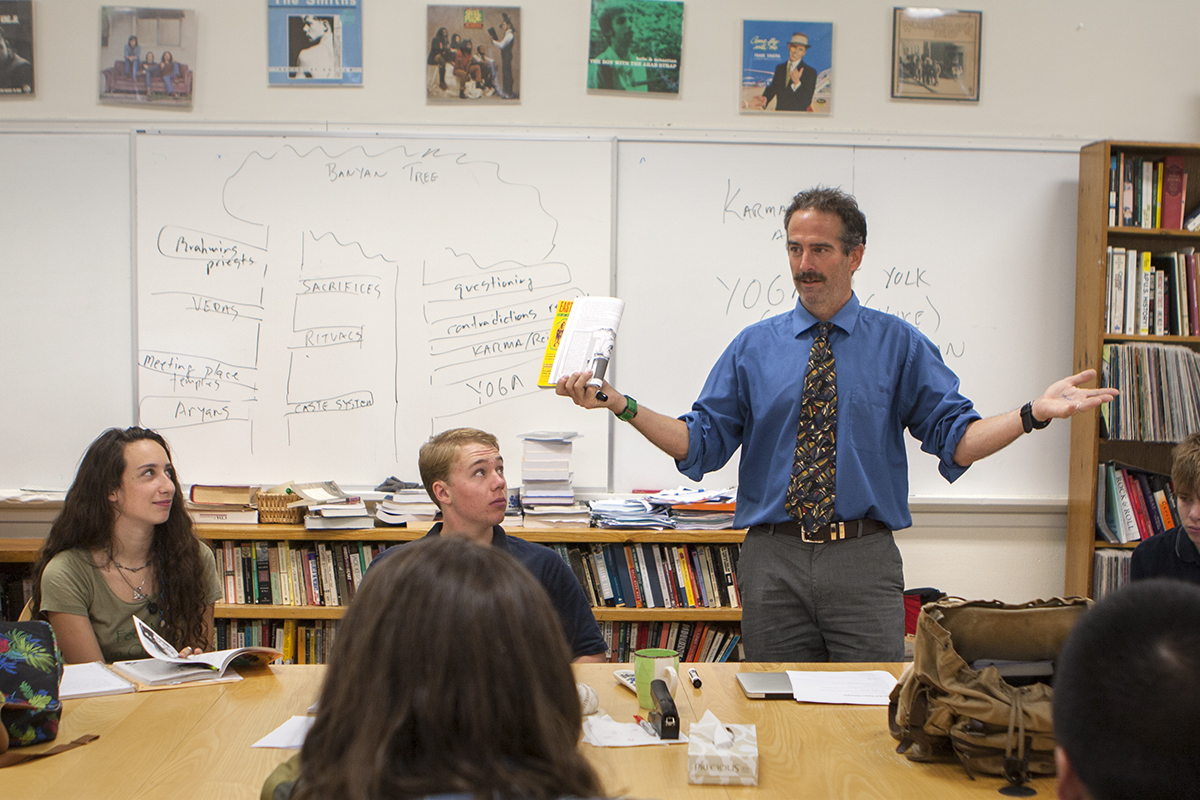To kick off our new Albert teacher spotlight series, we chatted with Dr. Brad Clarke. Dr. Clarke teaches at Gould Academy in Bethel, Maine. Known lovingly by his students as “DC,” he uses Albert in his AP® Government and AP® US History courses. Dr. Clarke has 20 years of teaching experience under his belt and believes that the Harkness style of teaching, where the class is centered around student-led discussion and there is minimal teacher talk, has transformed engagement and rigor in his classroom. On top of teaching, he serves as the Associate Dean of Academics, the history department head, and the running coach. He has served as a teaching assistant at Brandeis University and Harvard University and received his Ph.D. in political science at Brandeis.
Dr. Clarke began using the using Albert with his students two years ago and has found that it’s an excellent tool to supplement a discussion- centered classroom. We wanted to know a more about Dr. Clarke’s teaching methods and how Albert has helped his students.








